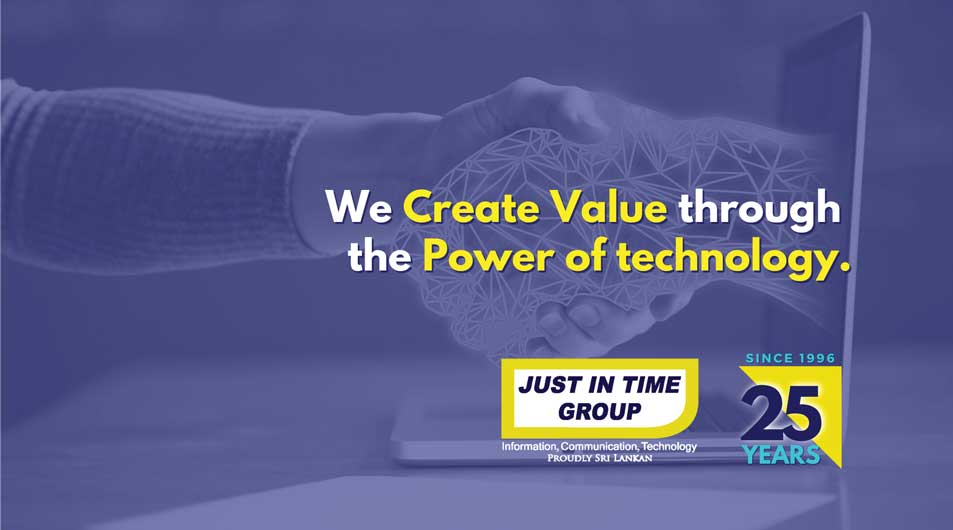JUST IN TIME GROUP
JUST IN TIME GROUP
Q: How are AI and IoT shaping the office of the future?
 A: Technology in many forms will be at the heart of every workplace as we return to the office following the coronavirus as the pandemic accelerated existing trends in remote work, e-commerce and digitalisation. COVID-19 compelled organisations and consumers to adopt new behaviours that are bound to stay.
A: Technology in many forms will be at the heart of every workplace as we return to the office following the coronavirus as the pandemic accelerated existing trends in remote work, e-commerce and digitalisation. COVID-19 compelled organisations and consumers to adopt new behaviours that are bound to stay.
Apart from faster processes or better ways of doing things, organisations are looking to not only make workplaces more secure but also deliver services to their clients in better ways and differently. IoT will play an important role in our ‘new normal’ and this will push its adoption in many technologies that already exist.
The future is about changing tedious, time and revenue consuming manual jobs, into strategically automated tasks and systems.
Even though most organisations at this point agree on the fact that AI will enable them to maximise their competitive advantages, less than a quarter of them have successfully implemented such technologies. Those that have are in the primitive stages and haven’t fully adopted such systems in their regular operations.
Adoption strategies are just as crucial to the process as the technology itself because they require an overhaul of how certain processes are managed.
AI has many areas to it, capturing patterns that we in the past would have had to go through heaps of information and data, and conducted analysis using some largely manual tool to gather. In contrast, artificial intelligence works through automation to get it done.
Technology like this will help everyone who works with data analysis and in related professions. AI is less time-consuming, and can be taught to understand various behaviours, thought patterns and trends. As such, it will invariably become the future contributor to many of these professions.
When looking at IoT – which experienced a great boost with the launch of 5G – it is certainly contributing to the office of tomorrow, and these tools and technologies will be beneficial for citizen services.
Looking at the smart cities of today (and the future), many of these initiatives will consume large quantities of these technologies, giving us an automated approach to our previously human sensor dependent outcomes.
 Q: What are the latest trends in your sector?
Q: What are the latest trends in your sector?
A: In our sector, the paramount need centres on how we help our customers enable their customers. For example, how can we assist one bank in being competitive against other banks and capturing market share?
We hope to deliver faster outcomes for tasks and processes that involve sorting data, filtering data, task management and other various activities that would have in the past used manual files or human storage.
This particular field has many names such as ‘digital transformative technologies.’ However, many aspects of a process don’t need to transform a system entirely where it can merely be a digitalisation process or in some instances, a combination of both.
Q: How would you describe the competition?
A: At Just In Time Group (JIT), we don’t focus on beating the competition. Rather, our focus is on giving customers the most recognised and optimised solutions.
Our strategy is to fix a problem or frustration the customer has and work on that. This is where our success has been.
Q: What are the main challenges faced by organisations?
A: The main challenge is earning acceptance of the importance of the technological solutions we are trying to implement at the board and CIO levels. These days, it is a must for a tech savvy person to be on boards and to get them to understand automation.
Keeping pace with knowledge is another key challenge as our industry is so fast-paced.
The challenge we have faced when introducing new technology – especially one that has been researched and its key engines have been thought through by large international enterprises – is that it comes at a level where it’s being experienced for the first time in Sri Lanka.
This has to be explained to the client to ensure they understand the added value of the price by looking at long-term relevance, which facilitates customer growth, updating, sustainability and other factors.
Q: What are JIT’s future plans?
A: Technology is not a field where we can take months to bring in the next ‘big attraction.’ We need to be agile in our responses and delivering outcomes. At the end of the day, customers are also fighting a battle with their own competitors so it is our job as technology providers to reinvent ourselves to provide a robust service offering.
JIT has geared up for its next chapter of organic growth and consolidation by offering outsourced services, software as a service and so on, using what we have already sold to customers and enhancing their businesses. We will be pursuing this with emphasis on applications integration, autonomous solutions and the fusion of multiple systems at a speed that suits the needs of the country.
 Q: Upon the completion of a successful 25 years in the business, what are your thoughts on the industry as a whole?
Q: Upon the completion of a successful 25 years in the business, what are your thoughts on the industry as a whole?
A: Having begun as a small company headed by our Founder Chairman Jit Warnakulasuriya, over these last 25 years, we’ve played a pivotal role in the payment landscape of Sri Lanka as there is a vast number of technologies in play when getting payments from one entity to another.
The market is slow to adapt – valuing customer centric technology is at a minimum. The shortage of people, infrastructure, labour laws, secure policies and investment without security are the challenges in the industry.
We are in one of the most challenging industries as what we do cannot be touched or felt; the value of software is not tangible. We firmly believe in value creation through technology for our customers.
This is our strength – stemming from the payments landscape, and other domains such as banking, defence, the public sector and telco among others – which enables us to confidently say that our contribution to some essential national IT ecosystems has been instrumental in changing Sri Lanka’s ICT landscape.
Our experiences with digital banking initiatives in Sri Lanka and many other telecom projects these past 25 years have shown us that while we’ve created a strong foundation in the past and experienced a great journey, there is no silver bullet for success. But the lessons learnt have helped JIT manage the new era of change in an agile business environment.
This is what we have always done – reinventing ourselves to continuously deliver as an agile, competent and robust group that is future ready.
___________________________________________________________________________
INTERVIEWEE DETAILS
Chrishan Mendis
CEO
COMPANY DETAILS
Telephone2574083
Email:info@jithpl.com
Website:www.jithpl.com



